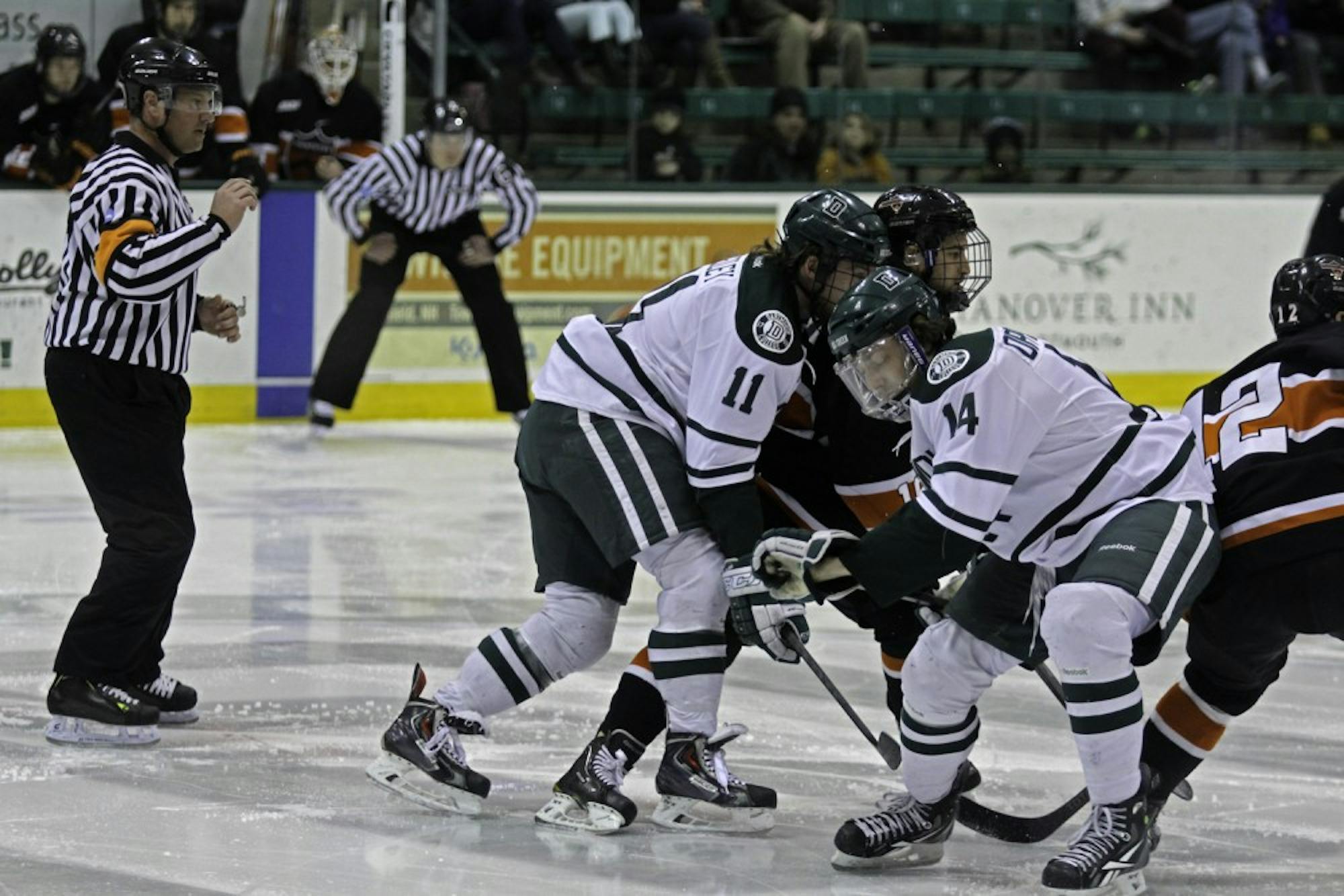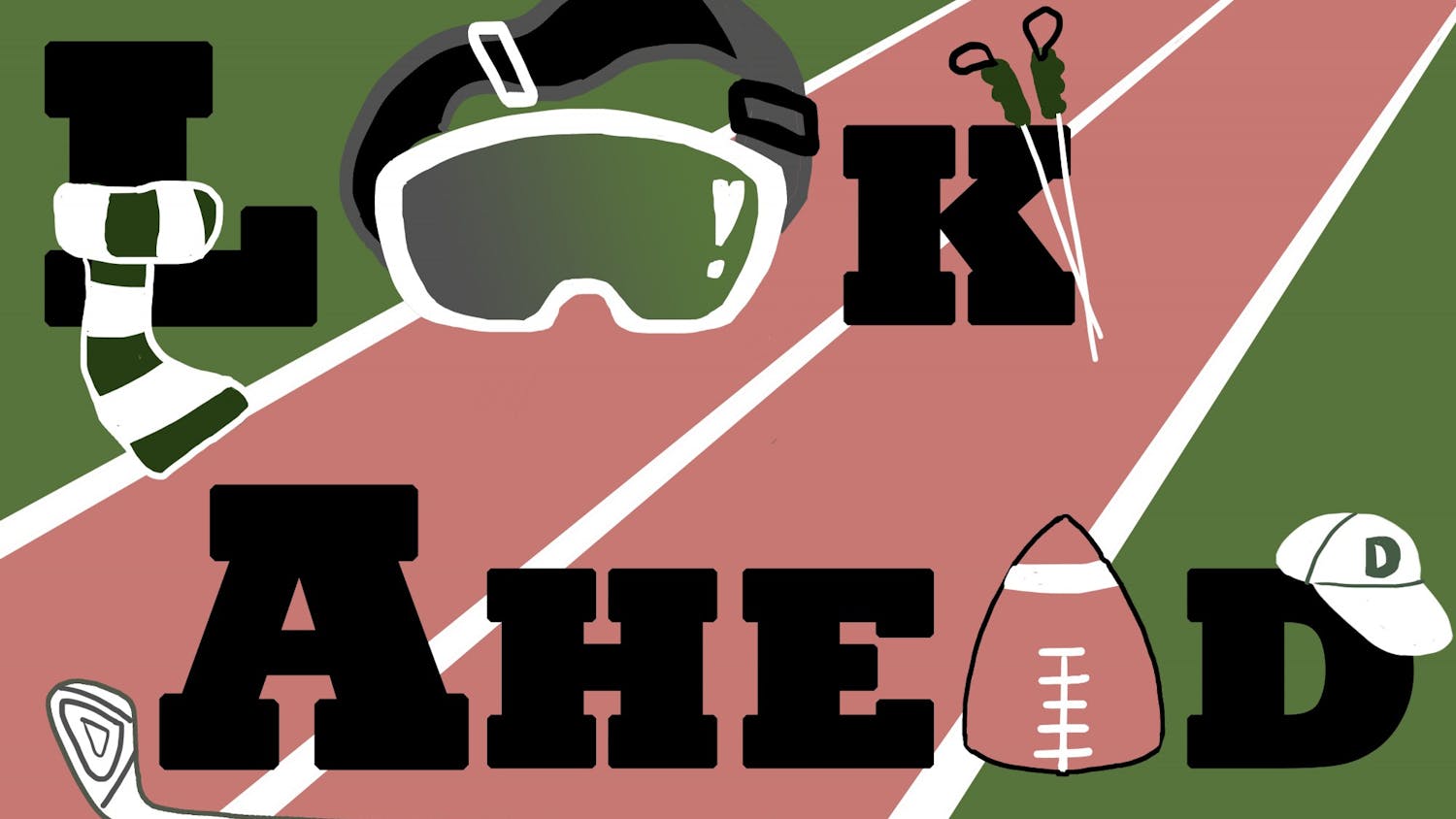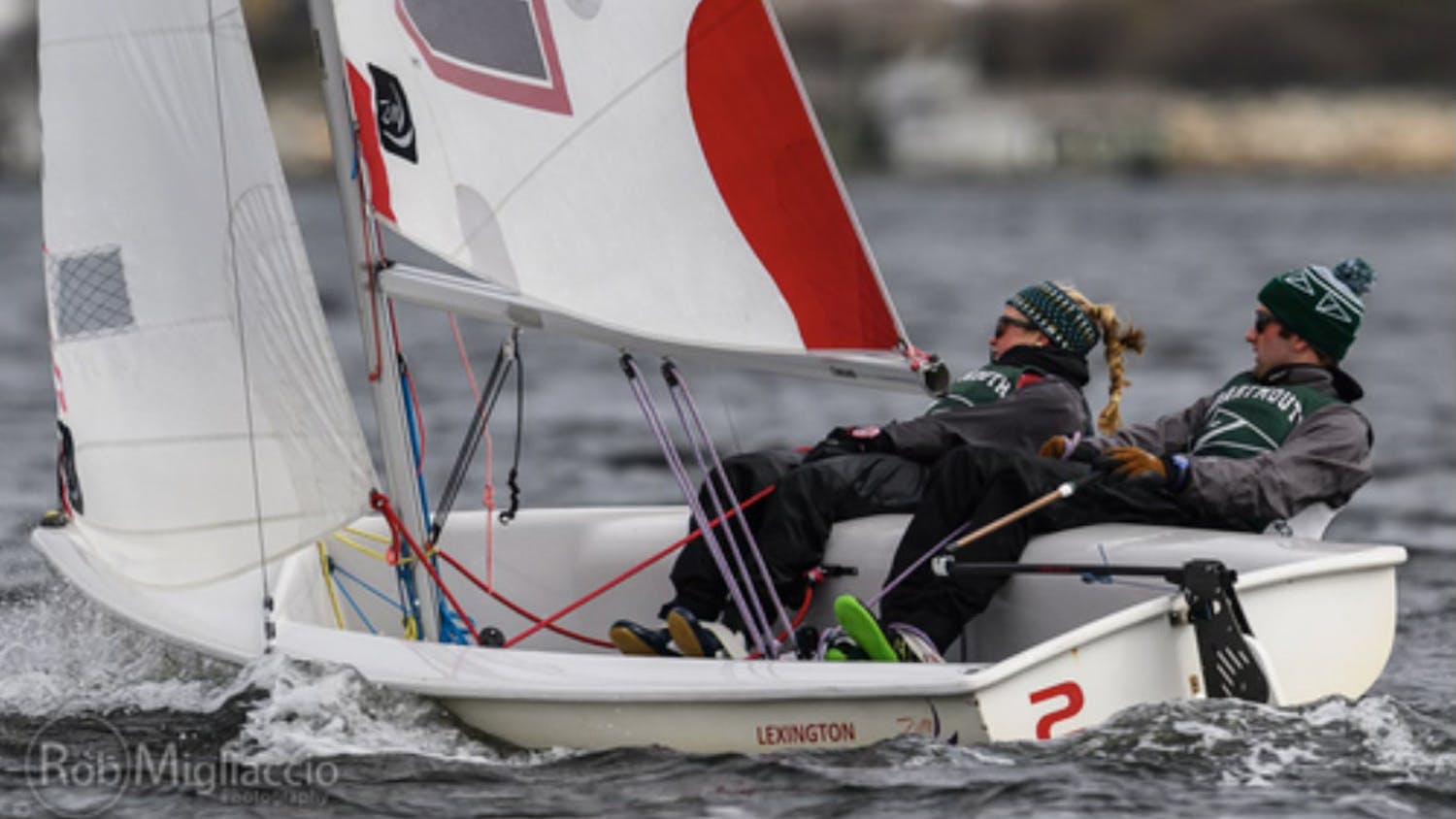The Dartmouth Men’s Ice Hockey team doesn’t have any first, second or even seventh round draft picks. Yet it has stacked its schedule with four of seven National College Athletics Association ranked teams this interim — some having an upwards of six players who went in the draft — including the no. 1 Boston University Terriers. In a Nov. 30 upset, Dartmouth shut out the Terriers 2-0, giving the Big Green a victory against the top-ranked team and goalie James Kruger ’16 the second shutout of his career.
The team began the season by tying now no. 4 ranked Harvard University, and the success it has managed to accomplish since then boils down to a few key elements in the Big Green’s back pocket that have come into play. Kruger, who was plucked from the bench after playing just seven games in two years between the pipes for Dartmouth, took to the crease after Chuck Grant ’16 tore his hamstring. Along with the help of his defense, Kruger has earned himself the fourth lowest goals against average in the Eastern College Athletic Conference (1.89).
Brett Patterson ’16 has proven himself a two-way player who can fill a void wherever it is found. Patterson has bounced between defenseman and forward since his freshman season, and has left the team better equipped to recover when injuries, sickness or other outside circumstances have sidelined critical players like wing Brandon McNally ’15 and defenseman Ryan Bullock ’16. Since moving up top after the first half of the season, Patterson has amassed six points in seven games, including one of the team’s only shorthanded goals, notched against Sacred Heart University.
Players like Patterson and Kruger fill the Big Green’s roster, alternate captain Eric Robinson ’14 said, and are keeping pressure on players to perform on a daily basis.
“A hidden blessing on our team is our depth,” he said. “It’s been different than years past when some guys might feel a little more comfortable when they’re in the lineup and so maybe they think they don’t have to work as hard in practice or in the games. Now, this year, there’s always that feeling that if you don’t do your job then there’s going to be someone that’s ready to step in.”
But the final element Dartmouth needs in order to contend with top-tier teams is to take the pieces that it has on the roster and put them together perfectly. It’s not enough to create a good lineup with alright chemistry — lineups with the best cohesion and team awareness create a great hockey team. The Big Green has been showing, in an almost unquantifiable manner, a growing sense of harmony — position anticipation, puck awareness and effective team transitions, as opposed to individual movement, were particularly on display most recently against the University of Denver.
It is this kind of growth that makes a team increasingly dangerous as the season unfolds, head coach Bob Gaudet said, when individual skill sets for star players have been mostly determined, but ice time as a team continues to add value for teams who have been waiting to click.
“I see that kind of mental discipline of knowing how to play the way we want to play,” he said. “We’re playing good hockey teams. We’ve found a workman-like way to generate shots and play good, solid defense. We’re playing the game the right way.”
The team did take two losses against then no. 15 ranked Quinnipiac University and currently no. 15 ranked Boston College, both coming after third period rallies by their opponents and, in Quinnipiac’s case, an overtime goal. This loss, however, was not disheartening to first line left wing Brad Schierhorn ’16, who said the team played the game they wanted to play up until they began to falter near the end.
“I think we’ve played our best stretch of hockey these last five games,” Schierhorn said in an interview before the Ledyard Classic this past weekend. “As far as the Quinnipiac game goes, we were definitely in that game. We just didn’t have a very good third period and then they scored in overtime.”
That kind of finish loomed over the championship game of the Ledyard Classic against the Boston College Eagles,who scored both of their goals in the third period. Wins and losses, however, aren’t the topic of concern circulating the locker room, two-time captain and first line center Tyler Sikura ’15 said.
“I think in some of the losses last year we just didn’t play very hard or well,” Sikura said. “This year we’ve been playing really well, and we’ve just been playing very good teams. So as far as a conversation about needing to bounce back [from this loss], there won’t be one.”
While Dartmouth has been playing much better hockey than Hanover has seen in the recent year, these finer points, like sticking through the final period and capitalizing on the somewhat unsatisfactory power plays, will need to be addressed if the team is to crash through the barrier that has perennially frustrated teams at the tipping point — the barrier between being good and being great.




